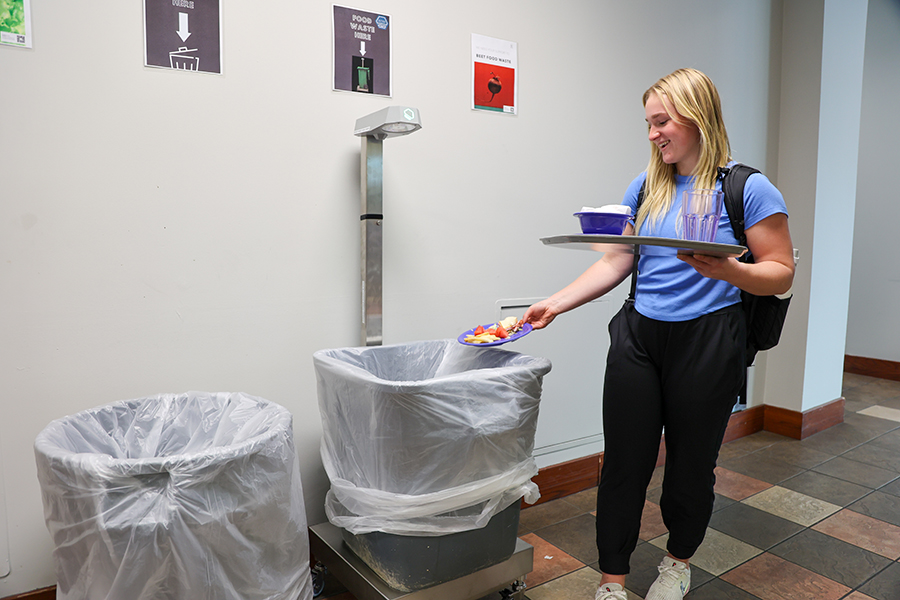The College is using KITRO, an innovative technology system in its dining hall to enhance sustainability efforts
Elizabethtown College recently introduced a new Artificial Intelligence (AI) technology to reduce food waste in the College’s primary residential dining location on campus, The Marketplace.
The new system, KITRO, identifies and measures discarded food items at the “all-you-care-to-eat” facility using a scale and camera while collecting real-time data insights that allow the College’s Dining Services team to make informed decisions about future menu choices and furthers Etown’s commitment to sustainability.
“At Elizabethtown College, we are committed to sustainability and are constantly seeking ways to be innovative in this space,” Elizabethtown College President Betty Rider said. “This new initiative is the latest of various ways Etown is leading efforts to leverage technology. By implementing KITRO into our Dining and Food Services process, we aim to eliminate food waste and increase efficiencies on campus.”
Founded in 2017, KITRO is a Swiss company that harnesses the power of technology and uses it for sustainable change. With artificial intelligence as the foundation, KITRO offers an automated food waste data collection and analysis solution utilized by food and beverage outlets worldwide.
Two KITRO systems are strategically positioned in the Marketplace to collect food waste. Students discard food waste into a trash can on a scale with a camera above it. The system’s camera snaps a photo each time food is discarded and collects data that informs Dining Services which food items are most often wasted.
“Since introducing KITRO, students are already being more mindful of the food they are choosing for meals,” Elizabethtown College Registered Dietician Savannah Greiner said. “We are excited to continue to track this data, share tangible information with our student body, and decrease food waste here at Etown.”
Although the College is in the early stages of the data collection process, patterns in food waste are beginning to emerge and are helping to identify instances when intervention can be the most impactful. These insights include a correlation between higher food waste and specific times and days of the week when the Marketplace is busier than usual.
“This could be attributed to students feeling rushed due to time constraints, prompting them to either quickly consume their meals or opt for larger portions, knowing they won’t have time for seconds,” Elizabethtown College General Manager of Dining Services Austin Benner said. “We’re eager to review the remaining data as it becomes available and implement positive strategies that meet our sustainability goals here at Etown.”
More than 22 million pounds of food are wasted annually on college campuses across the United States, according to the National Resource Defense Council (NRDC). As the first higher-education institution in the United States to implement the KITRO system, Etown is remaining on the cutting edge of sustainability through creative, data-driven solutions.
This latest initiative adds to the sustainable strategies in the College’s daily operations, which also includes a pulping system that transforms food waste into electricity and fertilizer through Etown’s partnership with a local farm.

